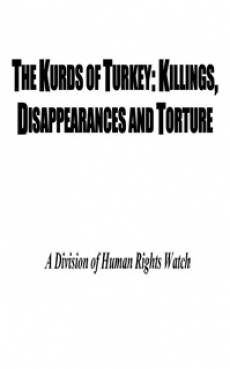| Introduction
Kurds in Turkey have been killed, tortured and disappeared at an appalling rate since the coalition government of Prime Minister Suleyman Demirel took office in November 1991. In addition, many of their cities have been brutally attacked by security forces, hundreds of their villages have been forcibly evacuated, their ethnic identity continues to be attacked, their rights to free expression denied and their political freedom placed in jeopardy.
This is the third report that Helsinki Watch has issued since 1988 on the plight of the Kurdish minority in southeast Turkey.1 It describes some of the events that have taken place since Prime Minister Suleyman Demirel's coalition government took office and their effects on the Turkish Kurds in southeast Turkey.
By way of background, Helsinki Watch reported in 1988:
The Kurds -- there are some twenty million in the world today -- have never had a country of their own, although they lay claim to a large region which they call Kurdistan and have shared a common language, religion and culture for thousands of years. The oil-rich, mountainous region that the Kurds inhabit was carved up after World War I and parceled out to Turkey, Iran and Iraq. Kurds are now living in all of those countries and, in smaller numbers, in Syria and the USSR. The largest group of Kurds is in Turkey, but it is absent from Turkey's official census figures because the Turkish government denies the very existence of the Kurds, whom they refer to as "mountain
Turks."
Repression of the Kurds in Turkey dates back to Ataturk and the establishment of the Turkish Republic in 1923. In that year the Treaty of Lausanne between Ataturk and the Allied powers conferred international recognition on the new Turkish state and carved up the territory claimed by the Kurds, giving the largest portion to Turkey. There was no mention of the Kurds in the document. Indeed the sections dealing with the protection of minority rights apply only to Turkey's "non-Muslim minorities," not to the devoutly Muslim Kurds. Between 1925 and 1939, there were constant revolts and peasant uprisings in the Kurdish regions of Turkey, exacerbating the government's fears that the Kurds were striving for recognition as a nation and that they had ties to Kurds in other countries. Turkish governments have used harsh measures in their efforts to suppress the Kurds and make them assimilate. The Kurdish language, Kurdish schools, Kurdish publications, Kurdish associations, Kurdish names and Kurdish music are banned. People have been sent to prison merely for acknowledging in public that there are Kurds in Turkey... | 